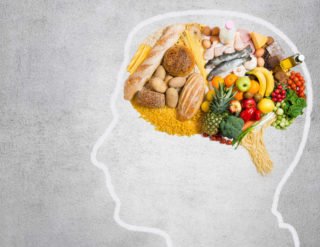The impact of high-fat diets is hotly debated. Dietary habits are closely linked to longevity. Researchers recently looked at what happens when rats are fed a high-fat diet. They found it disturbs the body clock in their brain that normally controls satiety, leading to over-eating and obesity.
The study sheds light on the link between high fat diets and overeating and obesity. The number of people with obesity has nearly tripled worldwide since 1975 (1). In England alone, 28% of adults are obese and another 36% are overweight (2). Obesity can lead to several other diseases such as Type 2 diabetes, heart disease, stroke, and some types of cancer (3).
How to avoid overeating
The new research may be a cornerstone for future clinical studies that could restore the proper functioning of the body clock in the brain to avoid overeating.
 Historically, it was believed that the master body clock was only located in a part of the brain called the hypothalamus. However, further research over the years has clarified that some control of our body’s daily rhythms. These include hormone levels, appetite, etc. which lie in several other parts of the brain and body.
Historically, it was believed that the master body clock was only located in a part of the brain called the hypothalamus. However, further research over the years has clarified that some control of our body’s daily rhythms. These include hormone levels, appetite, etc. which lie in several other parts of the brain and body.
This includes a group of neurons in the evolutionary ancient brainstem, called the dorsal vagal complex (DVC). Specifically, the DVC has been shown to control food intake by inducing satiety.
High-fat diets, hormones, and food intake
Research has also shown that in obesity, daily rhythms in food intake and the release of hormones related to eating, are blunted or eliminated.
However, it has not been clear if the malfunctioning of brain centres controlling appetite is a cause or the result of obesity.
New study
The new research was conducted at Jagiellonian University in Krakow in collaboration with the University of Bristol. The researchers found that high-fat diet-fed rats before they started to gain weight showed changes in the DVC’s daily neuronal rhythms and the response of these neurons to appetite hormones.
Thus, the researchers propose that disturbance in the DVC’s timekeeping leads to obesity, rather than being the result of excessive body weight.
High fat vs well-balanced diet
The research was performed on two groups of rats: those fed a well-balanced control diet (10% kcal from fat) and a high-fat diet (70% kcal from fat).
To mimic the impact of an unhealthy diet on humans, the researchers introduced the new diet to adolescent rats (4-week-old). Rat food intake was monitored across 24 hours for four consecutive weeks.
This is what happened
Electro-physiological recordings were performed to measure how DVC neuronal activity changes across 24h. The use of multi-electrode arrays allowed for simultaneous monitoring of around a hundred DVC neurons from each brainstem slice. This enabled the researchers to assess circadian changes in neuronal activity as well as neuronal responses to metabolically relevant hormones in each of the diet groups.
Rats vs. humans
While human and mouse brainstems share common features, the major limitation of the study for their immediate translation to humans is that it was performed on nocturnal animals (rats). The peak DVC activity was observed at the end of the day. This is the remaining phase for rodents, but it’s an active phase for people.
Thus, it remains to be established if the phase of the brain stem clock is set to day and night, or whether it depends on patterns of rest and activity.
In closing
This study opens new research opportunities for trying to establish strategies for how to restore body clock function in DVC, and therefore help tackle obesity. Dr. Lukasz Chrobok, the first author of the study, said:
“I’m really excited about this research because of the possibilities it opens up to tackle the growing health issue of obesity. We still do not know what are the time cues which are able to reset or synchronise the brainstem clock. Hopefully, the restoration of daily rhythms in this satiety centre before or after the onset of obesity may provide new therapeutic opportunities.”
References
- https://www.who.int/news-room/
fact-sheets/detail/obesity- and-overweight - https://commonslibrary.
parliament.uk/research- briefings/sn03336/ - https://www.nhs.uk/conditions/
obesity/ - Full paper title: Rhythmic neuronal activities of the rat nucleus of the solitary tract are impaired by high-fat diet – implications for daily control of satiety Link to paper https://physoc.
onlinelibrary.wiley.com/doi/ abs/10.1113/JP281838 (link will only work after the embargo date. Before then, please email the press office for a copy of the paper) - The Journal of Physiology publishes advances in physiology which increase our understanding of how our bodies function in health and disease. http://jp.physoc.org
The Physiological Society brings together over 4,000 scientists from over 60 countries. The Society promotes physiology with the public and parliament alike. It supports physiologists by organising world-class conferences and offering grants for research and also publishes the latest developments in the field in its three leading scientific journals, The Journal of Physiology, Experimental Physiology and Physiological Reports. www.physoc.org



![women [longevity live]](https://longevitylive.com/wp-content/uploads/2020/01/photo-of-women-walking-down-the-street-1116984-100x100.jpg)










